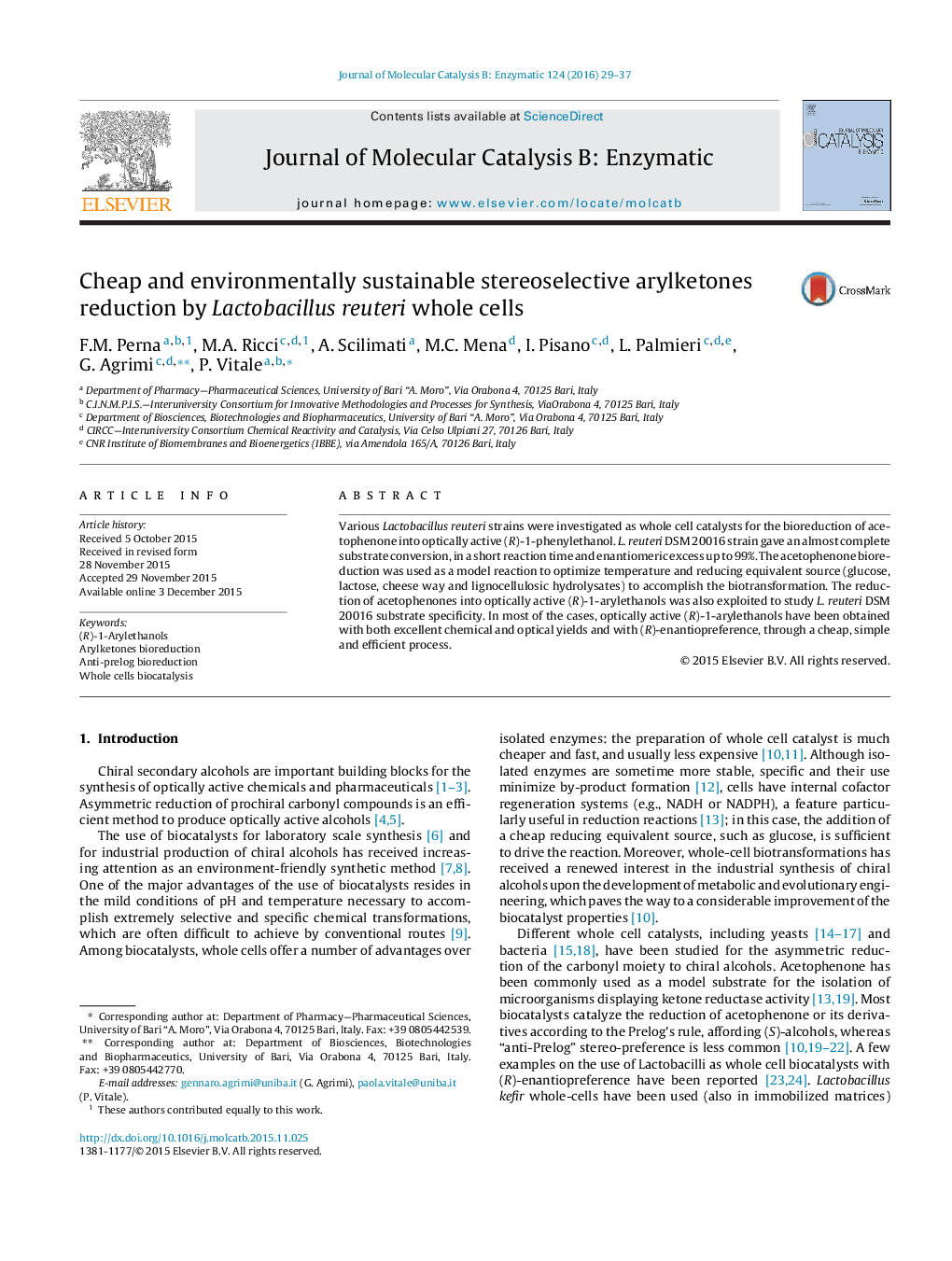| Article ID | Journal | Published Year | Pages | File Type |
|---|---|---|---|---|
| 69505 | Journal of Molecular Catalysis B: Enzymatic | 2016 | 9 Pages |
•Lactobacillus reuteri was used as whole cell biocatalyst for the bioreduction of arylketones.•High yields of (R)-1-arylethanols were obtained in a short reaction time by a cheap and simple process.•The reaction requires only the use of cells and a suitable reducing equivalent source.•No by-products of the arylketone biotransformation were formed.•Bioreduction of different acetophenones was exploited to study L. reuteri substrate specificity.
Various Lactobacillus reuteri strains were investigated as whole cell catalysts for the bioreduction of acetophenone into optically active (R)-1-phenylethanol. L. reuteri DSM 20016 strain gave an almost complete substrate conversion, in a short reaction time and enantiomeric excess up to 99%. The acetophenone bioreduction was used as a model reaction to optimize temperature and reducing equivalent source (glucose, lactose, cheese way and lignocellulosic hydrolysates) to accomplish the biotransformation. The reduction of acetophenones into optically active (R)-1-arylethanols was also exploited to study L. reuteri DSM 20016 substrate specificity. In most of the cases, optically active (R)-1-arylethanols have been obtained with both excellent chemical and optical yields and with (R)-enantiopreference, through a cheap, simple and efficient process.
Graphical abstractFigure optionsDownload full-size imageDownload as PowerPoint slide
